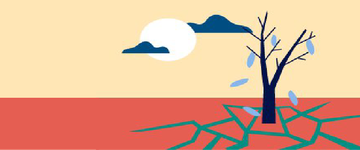Why does climate change matter?
WEATHER
As the earth heats up, it changes wind and ocean patterns. This upsets the weather we’ve built farms and cities around for the last 6000 years. Everywhere is experiencing some change in rainfall or temperature. In many places, these changes are extreme.
- Storms and Floods A hotter ocean causes more evaporation, meaning clouds pick up more water before dumping it on the land. This means that places which already experience cyclones, typhoons and hurricanes are experiencing more and bigger storms. In cold regions, melting snow can also lead to floods.
- Droughts If rain is falling in once place, it’s not falling in another. As rainfall patterns change, many places are experiencing drought. For example, changes to the monsoon can lead to floods in Asia and drought in Australia.
- Fires More evaporation and less rainfall leaves vegetation dry. Dry plants and high temperatures make it easy for fire to spread. In Brazil, Australia, and the United States, dozens of people have died, thousands have lost their homes, and millions of acres were destroyed. Fires are also bad because they release more carbon into the atmosphere.
FOOD
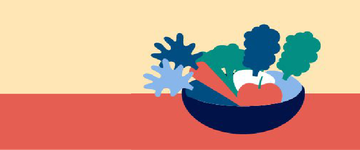
Too much rain drowns crops, too little causes drought. More heat leads pests and diseases that kill crops and livestock. All of this means more hunger.
SEA LEVELS
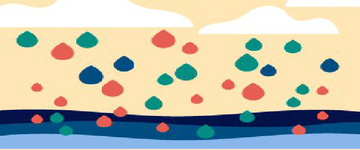
As the ice caps over Greenland and Antarctica melt, they raise the level of the sea. Water expands when hot, so rising sea levels are also due to a larger ocean. Low lying nations like the Pacific Islands and Bangladesh are particularly at risk. The hot ocean cannot store the carbon dissolved in it (think of the bubbles that form when you boil water) so as it gets warmer it releases more carbon, and speeding up climate change even more.
HEALTH
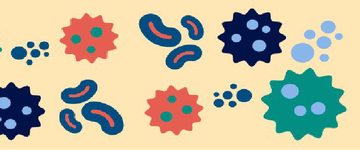
As temperatures get warmer, heat-loving insects like mosquitoes can travel further, bringing diseases like malaria, dengue and zika to more people. Climate change also causes deaths from heat stroke. The same fossil fuels and forest fires that cause climate change also increase air pollution, leading to cancer, heart disease, respiratory conditions, impaired brain development, and premature births.
CONFLICT & MIGRATION
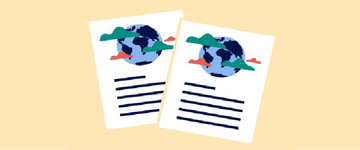
As all of these problems get worse, people are forced to move in search of safety. Some Pacific Islanders have already left their homes due to sea level rise, while floods and droughts everywhere from South America, to India, to Sudan are also causing migration. It is likely that competition over scarce resources, especially with more migration, will lead to new conflicts, and old ones breaking out again.
BIODIVERSITY
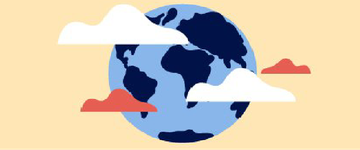
Humans and weather, like floods and fires, can ruin animal and plant habitats. Some animals need the cold to feed or breed, while others die in the heat. As the ocean heats, for example, corals begin to die. Coral is the backbone of the marine ecosystem. More than 60% of all animals have been wiped out by humans in the last 50 years.
At least 1 million species of animals and plants are threatened with extinction. This is not just bad for them, but bad for people, as we rely on healthy ecosystems. Insects pollinate our crops, millions of people rely on fish for food, many plants and animals produce medicine, and we all breathe oxygen from plants and algae.
Average Rating: ☆ ☆ ☆ ☆ ☆ (0 reviews)


